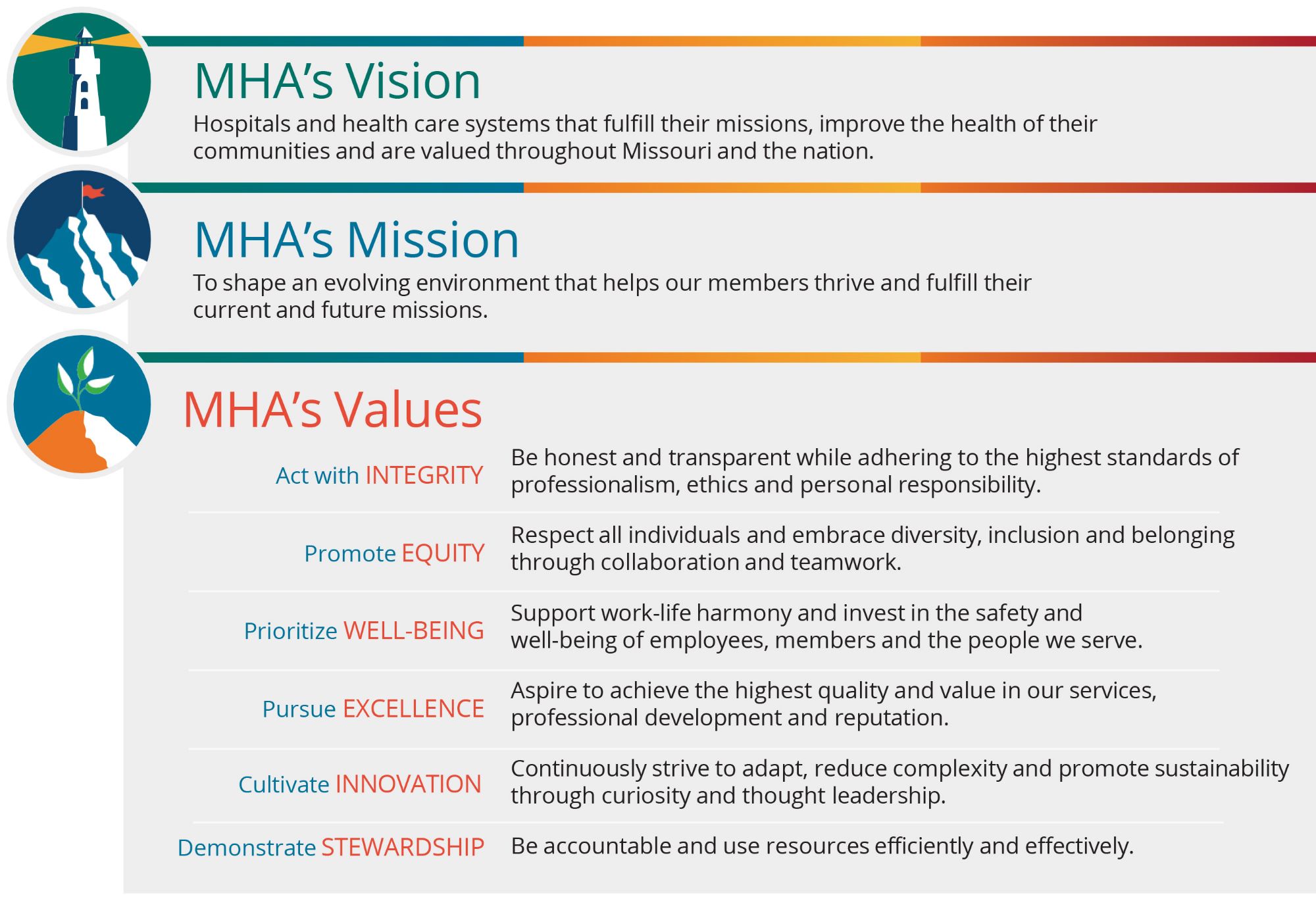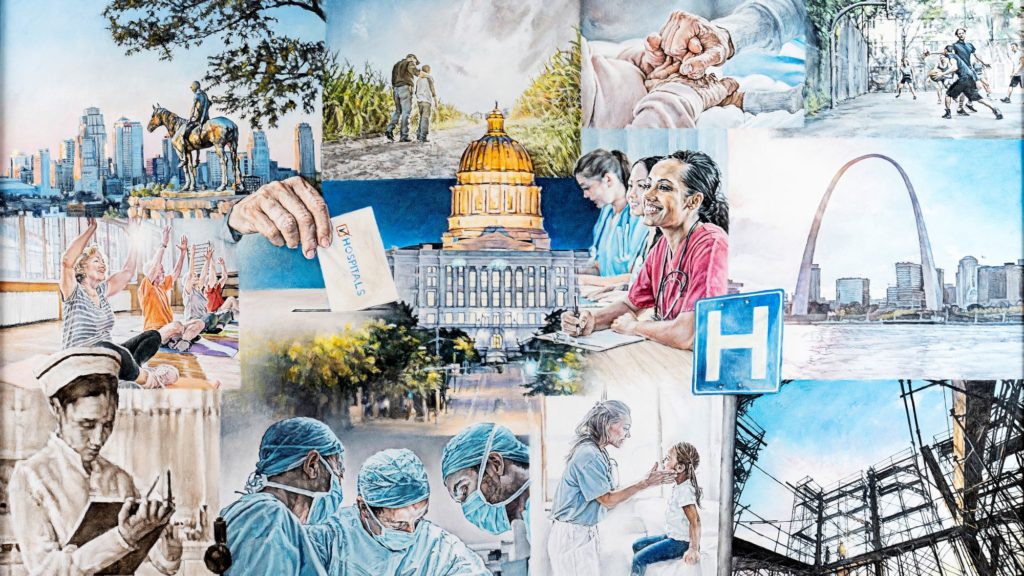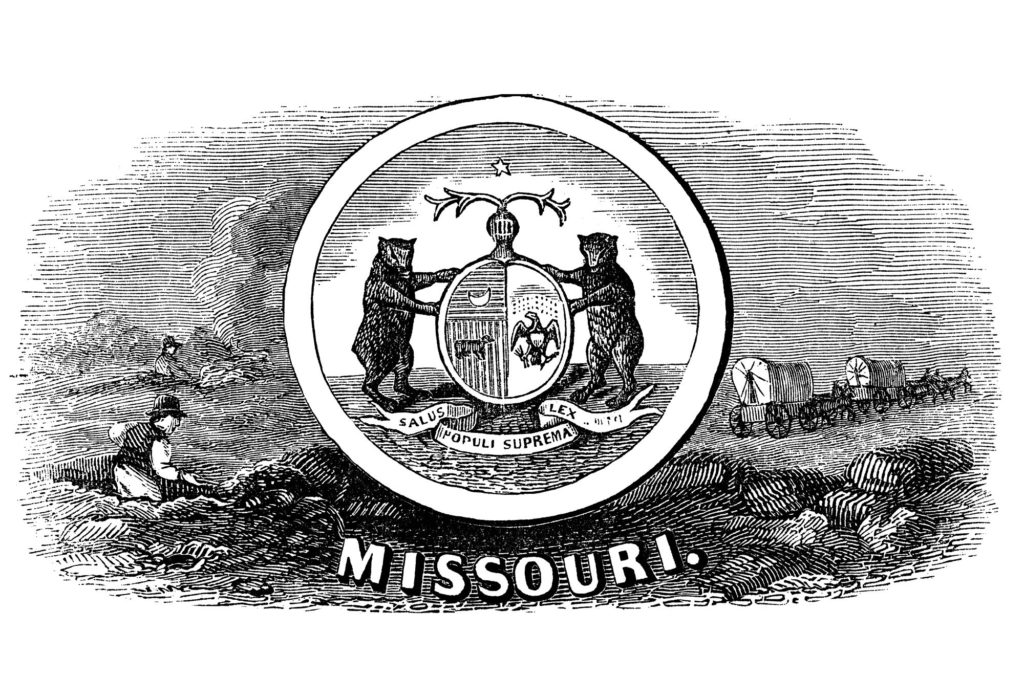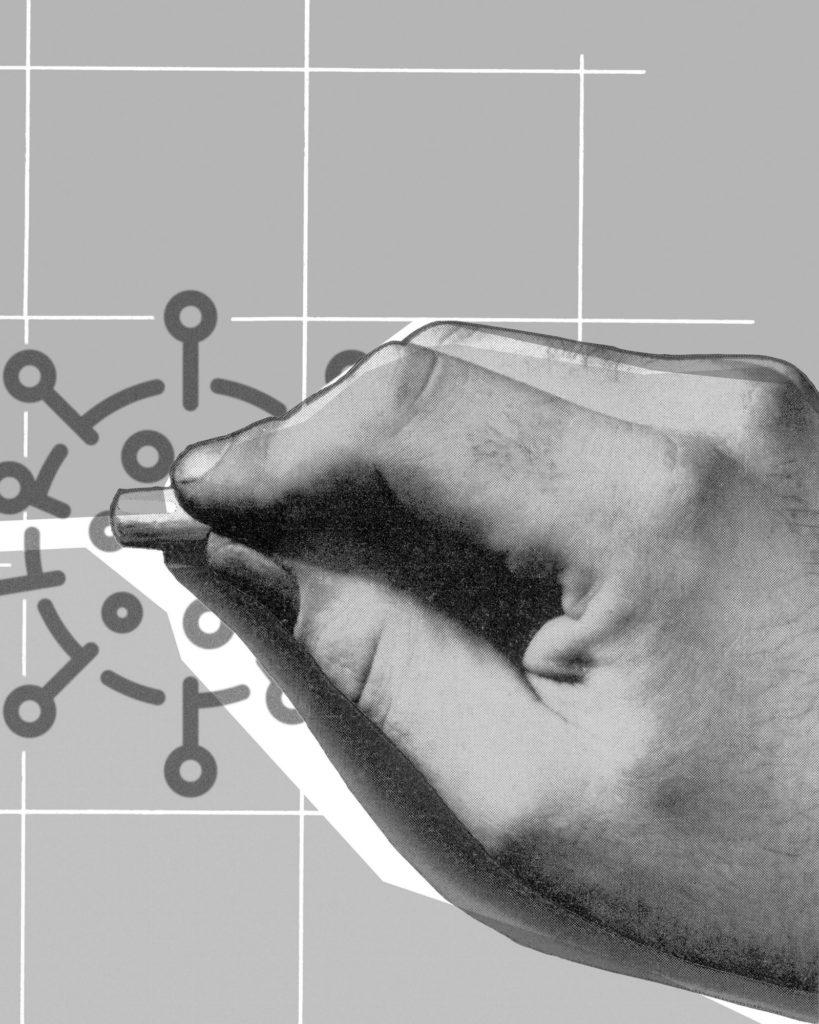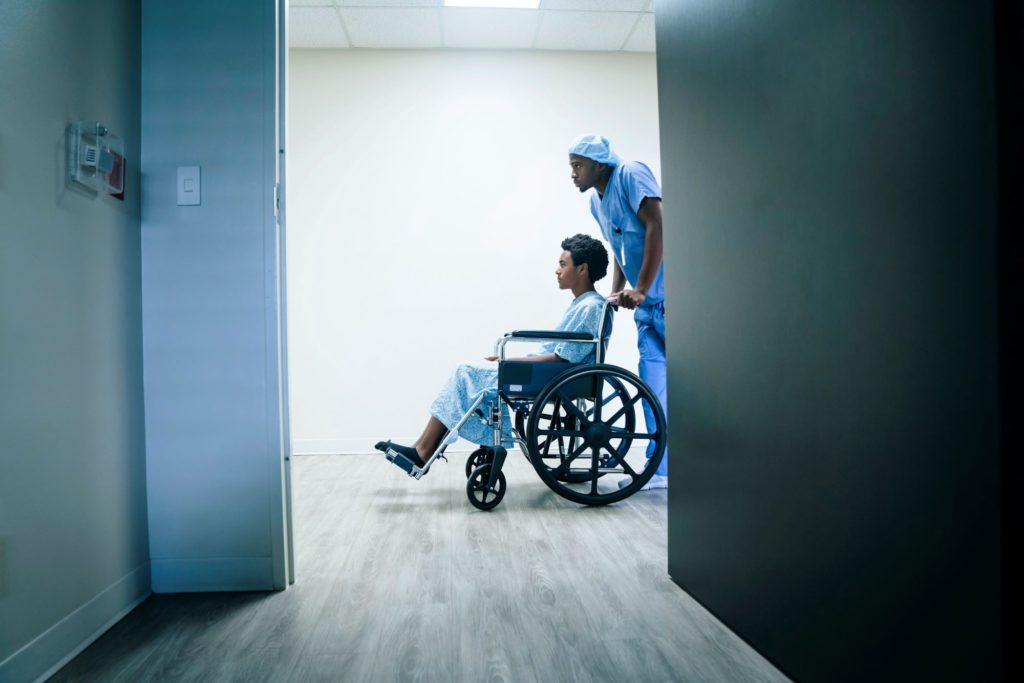
A Note From Jon Doolittle
An annual report should remind stakeholders why their alignment is essential. This report is designed to remind hospital and health system leaders that MHA provides incredible resources to help its members fulfill their current and future missions. It also is a powerful reminder — in MHA’s 100th year — that our strong and unified voice on issues drives value.
Together, for a century, we’ve used the framework of our association to respond to change and seize opportunity. From the Great Depression and World War II to Medicare and the Affordable Care Act, MHA has been a venue for collective action to support hospitals. As we work together to tackle today’s pressing issues — the health care workforce, cost and reimbursement disparities, and the increasing pressures to improve health and care, among others — we must stand together.
One-hundred years ago, hospital leaders had the foresight to create a forum for the issues that connected their organizations in service to their communities. We are the stewards of that effort.
Thank you for your ongoing support. It is an honor to serve on behalf of the state’s hospitals.

Jon D. Doolittle
MHA President and CEO
A printable PDF of MHA’s 2022 Report of Accomplishments is available.
MHA provides hospitals the means to affect legislation and policy, and the feedback systems to help them understand and adapt to change. Shaping a system that helps hospitals thrive — through state and federal legislative and executive advocacy — is MHA’s core business.
In 2022, MHA continued to work toward the evolution of the state’s Medicaid program. Lawmakers funded expansion in the 2023 state budget, and by year’s end, expansion enrollment will be near originally predicted numbers. This favorable mix of high federal-share enrollees will begin to take pressure off the state’s share of Medicaid payment match and is beginning to reduce hospitals’ Federal Reimbursement Allowance assessments. In addition, MHA is managing the state and federal payments to return value to members. In September, the MO HealthNet Division and MHA worked together to disburse more than $111 million in unspent Disproportionate Share Hospital payments from 2017 to qualifying hospitals.
Significant changes are occurring at MHD, and MHA is committed to having a place at the table as decisions are made about the future of the state’s Medicaid program. In 2022, MHA dropped a lawsuit related to directed payments, repositioning from a litigation-based to an engagement-based strategy for MHD’s Medicaid transformation. This has increased the transparency between MHA and MHD, and it expanded collaboration with the state in MHD’s transformation office to improve rural and maternal health.
To help create new opportunities to provide adult behavioral health care in the state, MHA encouraged the state to seek a federal Section 1115 waiver to expand access and reimbursement. Submitted this summer, the waiver would allow Medicaid to reimburse for adult behavioral health services, filling a critical need in the health care continuum.
Every legislative session includes both offense and defense — 2022 was no exception. Notable successes include funding support for boarded behavioral health patients, improvements within the Time Critical Diagnosis system, investments in workforce development — including expanding access at educational institutions and a medical preceptor tax credit — and expansion of rural telehealth.
A strong defense helped stall lawmakers’ attempt to manage Medicaid expansion funding through the traditional appropriations process. Compromise legislation on hospital visitation — a result of COVID-19 restrictions for infection control — was delivered. Other legislation held at bay included Certificate of Need repeal, conceal and carry in hospitals, nurse ratios, and various physician-related issues.
Advocacy occurs year-round. MHA’s governmental relations team engages with lawmakers, statewide elected officials and regulators throughout the year to help shape their understanding of health policy. These relationships are essential to hospitals’ efforts to improve health, health care and hospitals. In 2022, MHA’s Political Action Committees supported lawmakers who shared hospitals’ goals of access, health improvement and a better health care system.
Not all advocacy is top-down. MHA’s grassroots advocacy program — Missouri Health Matters — supports improved public understanding of the issues that matter to hospitals. More than 100,000 Missourians are engaged through the system.
$ To Hospitals From Advocacy
- $111 Million — Unspent DSH
- $22.3 Million — Wage Index Adjustment
Throughout 2022, MHA coordinated with the Missouri Department of Health and Senior Services, and federal Health and Human Services Region 7 leaders, to continue response and recovery efforts. These efforts included identifying variances and waivers to maintain operational flexibility for the duration of the response. Hospital data reporting and disease management coordination — for COVID-19 and emerging threats like RSV and influenza — will continue. The partnerships and lessons learned from COVID-19 will improve MHA’s overall effort to support hospitals.
Inflation is increasing faster than reimbursement, threatening the financial stability of most hospitals. Disparities outside of, and upstream from, the clinical environment are reducing hospitals’ ability to deliver health and health care, while payers are increasingly focused on outcomes. Where these challenges exist, MHA is focused on identifying opportunities and building partnerships to serve hospitals and communities.
MHA partnered with the Missouri Chamber of Commerce and Industry and state agencies to host the first Virtual Health Career Day. More than 400 educators and 6,000 students participated. In addition, MHA staff participated in a DHSS task force on the health care workforce. The recommendations, “Streamlining the Workforce Pipeline: Recommendations for Public Health and Healthcare in Missouri,” is designed to shape future investments.
During the 2022 legislative session, MHA advocated for additional appropriation through the Nursing Education Incentive Plan. The NEIP appropriation, adopted by the General Assembly and approved by Gov. Parson, will provide twice the level of normal funding in 2023 — $3 million. The additional funding will allow the state’s educational institutions to expand their health care workforce-development capacity.
MHA supported action within the regulatory system to help support access to workers. Working with the Missouri Board of Nursing and DHSS, MHA supported guidance for paramedics to work in the inpatient setting. MHA also worked with the Board of Healing Arts to streamline physician licensure.
Not all workforce challenges are supply and demand related. Violence in the workplace destroys culture and can drive caregivers and the workers who support them out of hospital-based care. MHA convened a Settings of Care conference in 2022 to bring clinical and operational leaders together to identify systems that support the goals of both teams and foster patient-centered, safe care environments. At the same time, MHA leveraged its efforts to implement Diversity, Equity, Inclusion and Belonging strategies to help hospital leaders cultivate engagement among their teams.
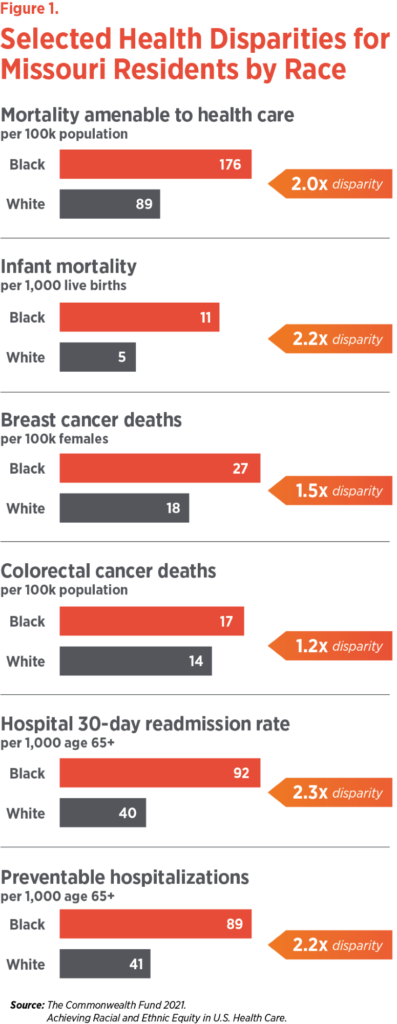
MHA’s Health Equity Committee is guiding the association’s work to help hospitals provide more equitable and inclusive care. MHA’s resources expanded in 2022, with new health equity guidance published in November to complement the public-facing Health Equity Dashboards and exploreMOhealth.com. The guidance is designed to help hospitals focus efforts on their health equity journey.
Among the most troubling disparities across both urban and rural Missouri are the poor maternal and infant health outcomes. To assist providers with improving care for these patients, MHA partners with the Alliance for Innovation on Maternal Health and convenes the Maternal-Child Learning and Action Network to deliver evidence-based practice and resources to the front lines of care. During the fourth quarter of 2022, MHA secured funding to formalize a statewide perinatal quality collaborative to address substance use among maternal health patients, the primary cause of preventable mortality among Missouri moms.
MHA’s quality and safety team delivers knowledge to improve care. MHA has supported Lean Six Sigma training with 26 hospital leaders achieving a green belt and two receiving their black belt. In addition to numerous other assets and ongoing programs, MHA redeployed a toolkit to help hospitals develop High Reliability Organizations.
2022 Maternal-Child Hospital Participants and Programs
- Cuff Kit Interventions — 4,350 cuff kits to 31 hospitals and stakeholder organizations
- Severe Hypertension in Pregnancy Collaborative — 36 hospitals
- Substance Use Disorder Collaborative — 23 hospitals
- Neonatal Abstinence Syndrome Collaborative — 14 hospitals
HIDI’s powerful analytics suite informs hospital decision-making by turning data into business intelligence — providing insight into market share, risk management, quality improvement and more. In 2022, HIDI revised its portfolio. Advantage Fundamentals includes secure and simple data collection tools for accurate and reliable data. Advantage Optics turns data into business intelligence using HIDI data curation, reports and dynamic state-of-the-art data visualization. Advantage Analytics transforms data into insights to support better decisions, forecast trends and seize opportunities. HIDI’s data power advocacy, quality improvement, innovation and strategic partnerships — for MHA and for the state’s hospitals.
MHA is a venue for knowledge transfer. Through the MHA Health Institute, leaders throughout hospital organizations can access current thinking on a broad range of topics. In person, virtually and, in some cases, at your convenience, MHA continues to evolve the way must-know information is delivered to hospitals. In 2022, more than 4,000 hospital team members attended nearly 70 MHI events.
That means a sustainable association focused on strong governance, engaged members, dedicated staff and fiscal strength.
MHA is committed to financial stewardship of member resources and value for dues investment. MHA continues to attract opportunities for funding other than dues to support programs that benefit Missouri hospitals and the communities they serve. MHA’s dependence on dues as a percent of total association revenue is among the lowest in the nation.
Your association is committed to ensuring hospitals have both the tools they need to succeed and the policy environment to focus on the efforts that improve not only health care, but health.
MHA’s goal is to help hospitals serve their communities. To achieve this goal, we’re committed to understanding hospitals’ needs, delivering superior value for membership and helping hospitals build the connections that help them succeed.
